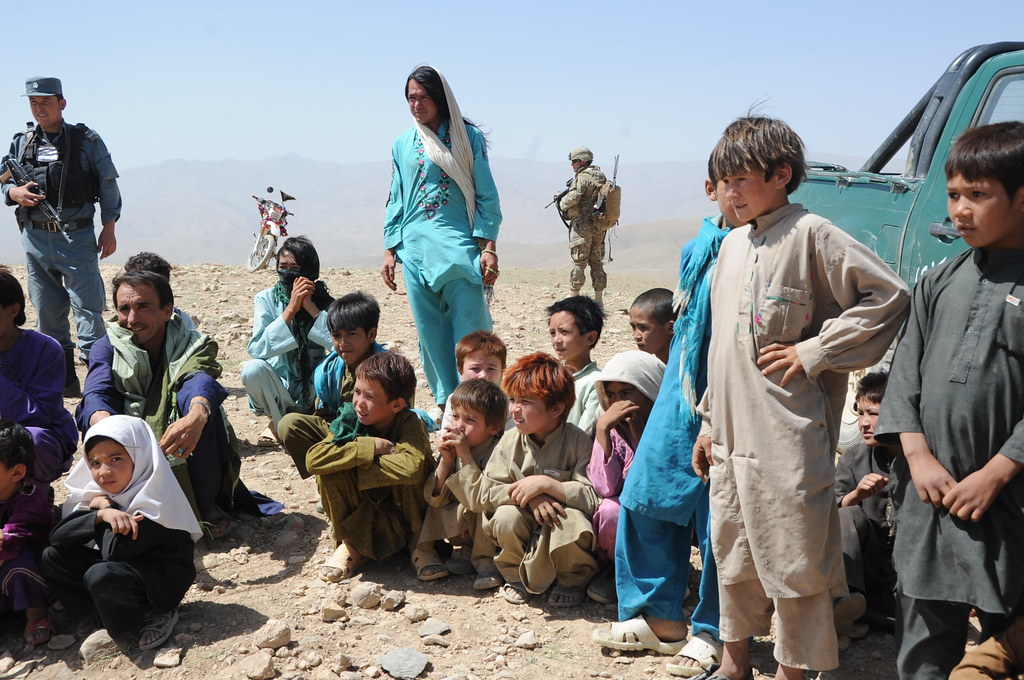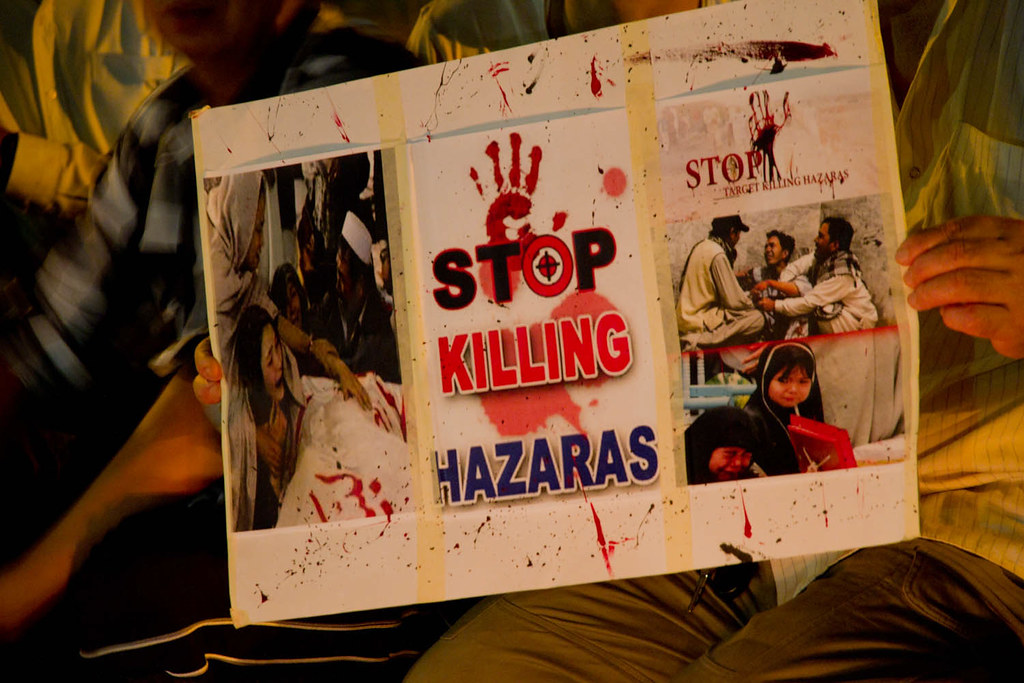By guest contributor, Devrishi Tyagi*
In the month of August, the Taliban seized power in Afghanistan, following the fall of the previous government. Ever since the takeover, there has been a rising fear among the people of Afghanistan and the international community, of an increase in human rights violations in the region. One of these fears is the persecution of the Hazaras by the Taliban.
The Hazaras are said to be the descendants of Genghis Khan, the founder of the Mongol empire. The ethnic group makes up anywhere from 15-20 percent of Afghanistan’s total population, making them one of the biggest and most important minority groups in the country. The history of the persecution of Hazaras is rooted in religious and ideological differences between two Islamic groups. In the late 19th century, the Sunni leader Pashtun leader Amir Abdul Rahman ordered the killing of all Shias in the country and as a result, the Hazaras were targeted for being one of the biggest Shia groups in Afghanistan.

The main reason behind the persecution of the Hazaras by the Taliban is the difference in religious ideologies and ethnic origin. The organization has a history of violence against the Hazaras and has committed atrocities against the people time and again, with the massacre in Mazar-E-Sharif, Bamyan and Yakaolang, being just a handful of those incidents.
This situation changed drastically after United States-led forces overthrew the Taliban in 2001. A democratic government was formed in the country and the Hazaras, as a result of the Bonn Agreement and the Constitution of Afghanistan, were able to participate in this process. With the fear of persecution becoming a thing of the past, the ethnic group was able to uplift its status, not just politically, but also financially and socially. However, the recent turmoil in the country underpins the dangers that might await this ethnic group in the near future.
Ever since its recent takeover, the Taliban has been making multiple claims and reassurances to the Afghani population and the international community regarding their support for the protection and promotion of human rights. However, despite these reassurances, there has been a steady rise in abuses throughout the country, ranging from women’s rights being curbed, public executions of people who violate the Taliban’s interpretation of Sharia Law, to many more. In fact, just in the month of August, Taliban fighters massacred nine ethnic Hazara men after taking control of Afghanistan’s Ghazni province, an act that was stated to be ‘proof that ethnic and religious minorities remain at particular risk under Taliban rule in Afghanistan’ by human rights groups like Amnesty International. In addition to this, there have been multiple observations regarding the increasing presence of groups like the Islamic State (ISIS) in the country, an anti-Shi’a terrorist organization that has been responsible for the mass killings of various ethnic minorities in the past, including the Hazaras.

Furthermore, the State of Afghanistan is a party to the Genocide Convention of 1948. Article II of the Convention states that ‘any acts committed with intent to destroy, in whole or in part, an ethnical group, as such: (a) Killing members of the group; (b) Causing serious bodily or mental harm to members of the group; can be termed as genocide’. To take a similar example of the ethnical targeting of a Muslim population, in the year 1992, Serbia started killing the Bosnian Muslim population, known as the Bosniaks, with the aim of ‘ethnically cleansing’ the Bosnian territory. In the case of Bosnia and Herzegovina v Serbia and Montenegro, the International Court of Justice stated that ‘the moment from which the State learns of, or should normally have learned of, the existence of a serious risk that genocide will be committed, from then onwards, the State has a duty to take the necessary steps to prevent those acts of genocide.’ This judgment showcases the State’s obligation to act on the threat of genocide, alongside the obligations of the State under the Genocide Convention. However, in the case of Afghanistan, one of the major threats of persecution that the Hazaras face is from the very group that has come into power in the country.
With the possibility of a lack of commitment by the Taliban to prevent the acts of genocide and persecution of the Hazaras, the international community must act together to make sure that an ethnic group should not have to face the consequences of their inaction. The aim of international treaties like the Genocide Convention is not just to provide a legal framework for prosecuting the perpetrators of heinous crimes, but also to make sure that the need for that does not arise in the first place.
* Devrishi Tyagi is a third-year law student at Symbiosis Law School, Pune(India)
Photo Credits
“Hazara of Daykundi province” by USACE Afghanistan Engineer District-South is licensed under CC BY-SA 2.0
“Stop Killing Hazaras” by ABC Open Riverland is licensed under CC BY 2.0

Really very insightful and sensitive analysis of the catastrophic human problem .